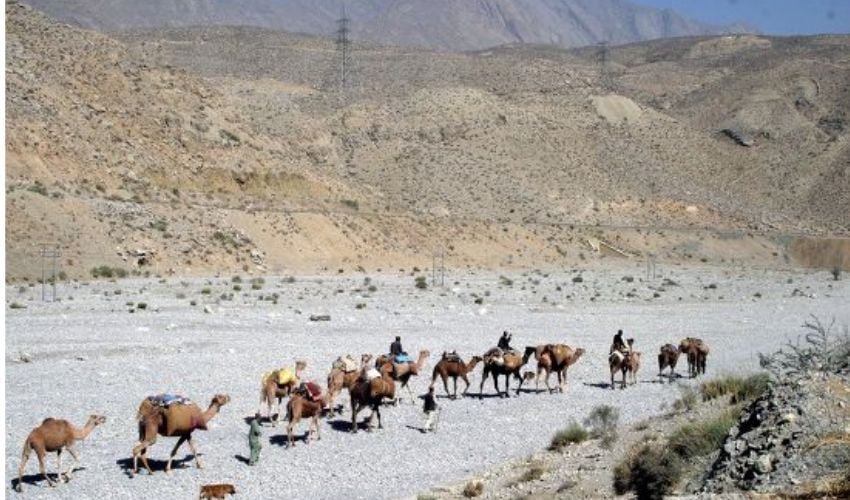QUETTA: Large parts of Balochistan are facing a severe drought due to a significant lack of rainfall, creating a crisis for water, agriculture, and livestock.
Official data reveals an alarming dry spell across the province. In Jiwani, no rain was recorded for 253 consecutive days, with similar conditions in Dalbandin (214 days), Nokundi (202 days), and Panjgur (173 days). The western regions, including Rakhshan and Makran divisions, along with Quetta, have been in a drought situation for the last six months.
The Deputy Director of the Provincial Meteorological Department, Muhammad Afzal, confirmed the severity of the situation. The direct consequences are a rapidly falling groundwater level, a shortage of drinking and agricultural water, and a lack of fodder for livestock.
The Director General of the Environmental Protection Agency, Ibrahim Baloch, attributed the crisis to climate change. He revealed that the government is considering a plan for “artificial rainfall” to combat the drought in the hardest-hit districts, as the Meteorological Department predicts no significant rain in the coming months.
Authorities stress that alongside such measures, long-term solutions like preventing water wastage and large-scale tree plantation are urgently needed.
The Regional Meteorological Centre has predicted predominantly dry weather for most parts of Balochistan. Residents in the northern areas can expect cold conditions during the mornings and nights.
According to a official spokesperson, the district of Kalat recorded the province’s lowest temperature at 7°C. They also warned that strong winds are likely to affect the Washuk and Chagai areas.
No rainfall was reported across the province in the last day. The current dry weather pattern is expected to continue throughout the coming weekend.
It is worth mentioning that in the month of October, areas of Quetta, Ziarat and surrounding are hit with dry and cold weather.
Western wind from Iran and Afghanistan hit the mountain areas.
In Quetta, the snowfall occurs mainly in the months of December and January which makes the living extremely difficult for the residents.
The gas pressure for the households falls and even the water freezes in the pipelines.
The same weather conditions can be seen in the areas of Ziarat and surrounding.
The eastern and the southern parts of Balochistan are also hit with cold wave in the mid of October and the an extremely cold weather sustains throughout the winter season.
With some extremely harsh weather conditions and poor roads, water and power infrastructure, the residents of Balochistan have a more challenging circumstances to cope with.
A region with mostly poor people needs an enhanced infrastructure of water, power and transportation so that the people can tackle with hardships and live better lives.
The uninterrupted gas and power supply and better roads and transport opportunities can lessen the intesnity of weather conditions and make the living easier for the Balochistan people.





